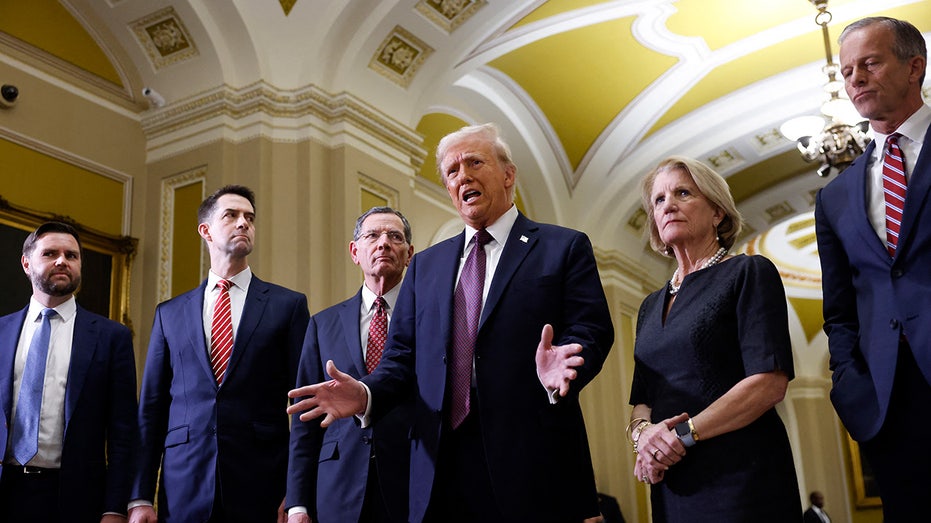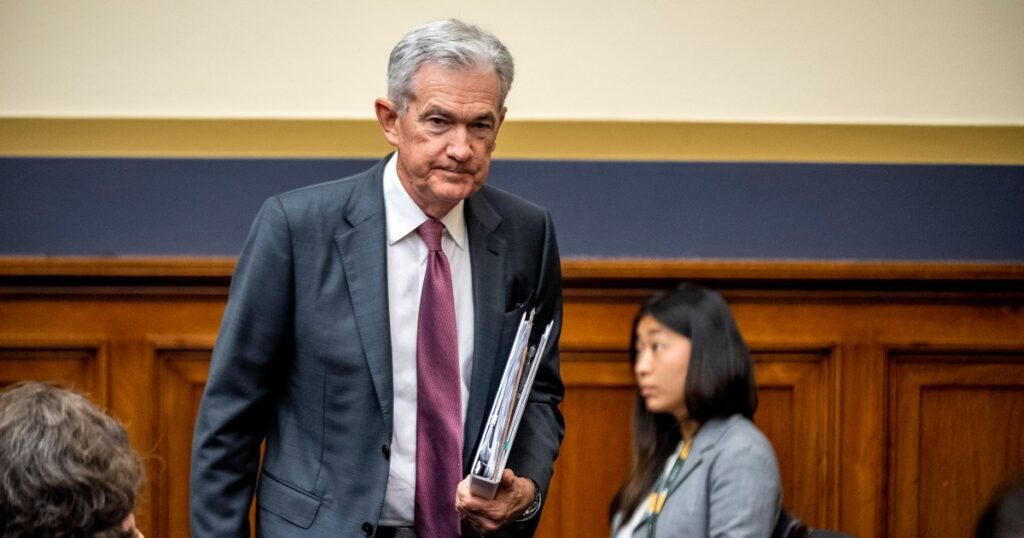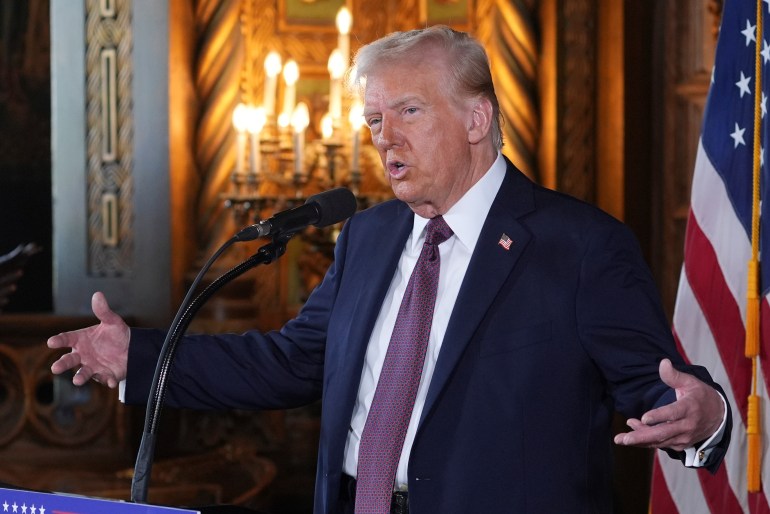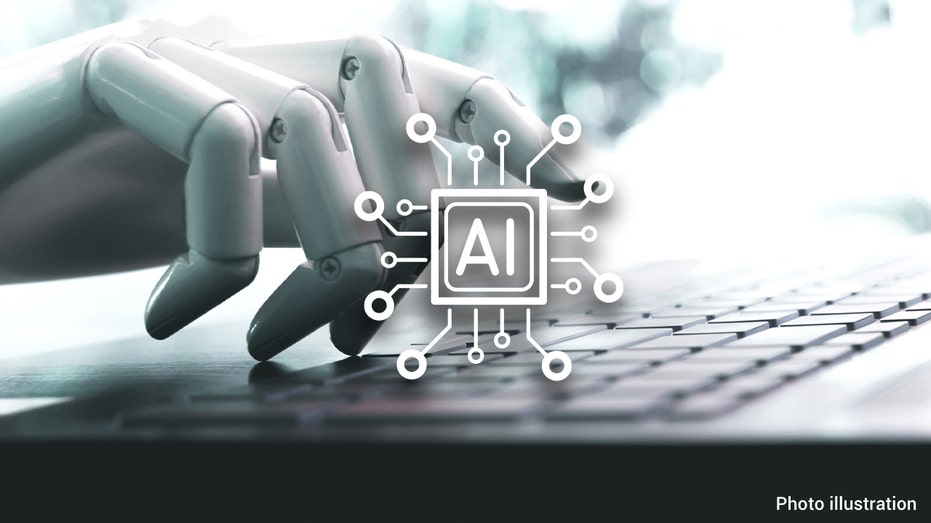This is one of India’s most expensive roads, also fastest and busiest, toll is Rs…

Constructed by the MSRDC, the Mumbai-Pune Expressway was the country’s first access-controlled road, and the travel time between two cities has been reduced from 3 hours to just 1 hour.
THIS train earns most for Indian Railways, not Shatabdi Express, Vande Bharat, it is…

The Indian Railway system collectively caters to millions of travelers throughout the year.
‘Stranger to child’: SC denies Atul Subhash’s mother custody of his minor son

A bench of Justices Bela M Trivedi and N Kotiswar Singh said the issue of the child’s custody could be raised before the court conducting the trial.
Trump details strategy to get necessary votes with one-bill approach to border, taxes

President-elect Trump pointed to a strategic benefit of the one-bill approach to budget reconciliation that he’s said he prefers during a closed-door meeting with Republican senators on Wednesday evening at the Capitol. By combining legislation relating to both the southern border crisis and taxes into one reconciliation bill, Trump suggested that one issue could potentially force some lawmakers to make a difficult decision. For example, if a Republican doesn’t support a piece of the tax component, they would also have to vote against the border provisions because they are in one measure. SENATE DEMS TO JOIN REPUBLICANS TO ADVANCE ANTI-ILLEGAL IMMIGRATION BILL NAMED AFTER LAKEN RILEY With portions of Trump’s 2017 Tax Cuts and Jobs Act expiring this year, the party is looking to act quickly. But the tax debate in 2025 is expected to be more divided among Republicans than that regarding the border. In particular, there is some disagreement in the party on state and local tax (SALT) deductions, which can benefit some states more than others and have been hit by some Republicans as inefficient. “If somebody, for example, in the House is balking because there’s not SALT in the tax agreement or some other provision they want, if that also means they’d be holding out and voting against the border, it might make it harder for them to do so,” Sen. John Hoeven, R-N.D., told Fox News Digital. “That’s a very valid point.” While SALT was not posed as an example of this by Trump himself, it was mentioned by a GOP senator in a side conversation among other attendees as they went over the advantages of a one-bill approach, Hoeven said. BORDER STATE DEMOCRAT RUBEN GALLEGO BACKS GOP’S LAKEN RILEY ACT AHEAD OF SENATE VOTE A source familiar told Fox News that Republicans are preparing to go with Trump’s one-bill preference, but they are also keeping the potential for two bills, one on the border and another to address taxes, in their back pocket in the case of any significant obstacles. Senate Majority Leader John Thune, R-S.D., told Trump that if one bill is what he wanted, that is what they are going to try first, the source said. A number of senators have their own preferences for two separate reconciliation bills instead, and some made their cases to Trump during the meeting. However, the conference is set to move forward with Trump’s one-bill approach. RFK JR. TO MEET WITH SLEW OF DEMS INCLUDING ELIZABETH WARREN, BERNIE SANDERS Greenland, Canada and the Panama Canal came up during the discussion following Trump’s remarks about each. Trump has recently said he wants U.S. to take back control of critical trade medium the Panama Canal, while also expressing interest in making Greenland and Canada part of the U.S. Sources familiar told Fox News that Trump brought these up himself during the meeting, telling senators at one point that these countries “were screwing with” the U.S. TRUMP, GOP SENATORS TO HUDDLE AT CAPITOL, WEIGH STRATEGY ON BUDGET, TAXES AND BORDER The senators believe his approach to Canada is already managing to change the country’s “behavior” and could have even contributed to the recent resignation of Canadian Prime Minister Justin Trudeau, the sources added.
Weather update: Delhi wakes up to chilly morning, temperature drops to…

The IMD has predicted a “dense fog” for the city on Thursday, however, contrary visuals have emerged from the different parts of the city.
Tirupati stampede: Death toll rises to six; CM Naidu closely monitoring the situation

The incident occurred near Vishnu Niwasam close to the Tirumala Srivari Vaikuntha Dwara ticketing counter, during the distribution of ‘darshan’ tokens.
US Fed officials expected slower rate cuts in 2025, say December minutes

Minutes of the December meeting show a division on decision to cut rates and the 0.25 percent cut was a ‘close call’. United States Federal Reserve officials at their meeting December 17-18 expected to dial back the pace of interest rate cuts this year in the face of persistently elevated inflation and the threat of widespread tariffs and other potential policy changes. Minutes from the meeting, released on Wednesday after the typical three-week lag, also showed clear division among the Fed’s 19 policymakers. Some expressed support for keeping the central bank’s key rate unchanged, the minutes said. And a majority of the officials said the decision to cut rates was a close call. Ultimately, the Fed chose to cut its key rate by a quarter-point to about 4.3 percent. One official, Cleveland Fed President Beth Hammack, dissented in favour of keeping rates unchanged. Still, there was widespread agreement that after reducing rates for three straight meetings, it was time to undertake a more deliberate approach to their key rate. Fewer rate cuts will likely mean that borrowing costs for consumers and businesses – including for homes, cars and credit cards – will remain elevated this year. Advertisement Policymakers said the Fed “was at or near the point at which it would be appropriate to slow the pace of policy easing”, the minutes said. In projections released after the meeting, Fed officials said they expect just two cuts next year, down from an earlier projection of four. Trump tariffs The minutes also showed that “almost all” Fed policymakers see a greater risk than before that inflation could stay higher than they expect, in part because inflation has lingered in several recent readings and because of “the likely effects of potential changes in trade and immigration policy”. The Fed’s staff economists considered the economy’s future path particularly uncertain at the December meeting, in part because of incoming President-elect Donald Trump’s administration’s “potential changes to trade, immigration, fiscal, and regulatory policies”, which the staff said are difficult to assess in terms of how they will impact the economy. As a result, they included several different scenarios for the economy’s future path in their presentation to policymakers. The staff projected that inflation this year would be about the same as in 2024 because they expected Trump’s proposed tariffs would keep inflation elevated. Stock markets plummeted after the Fed officials reduced their outlook for rate cuts last month. Fed Chair Jerome Powell said at a news conference after the meeting that the decision to reduce rates had been a “close call”. Powell also said that recent signs of stubborn inflation have caused many Fed officials to pare back their expectations for rate cuts. According to the Fed’s preferred measure, inflation ticked up to 2.4 percent in November, compared with a year ago, above the Fed’s 2 percent target. Excluding the volatile food and energy categories, it was 2.8 percent. Advertisement In addition, some officials have started to consider the potential impact of Trump’s proposals, such as widespread tariffs, on the economy and inflation next year, the minutes said. Economists at Goldman Sachs, for example, have estimated that Trump’s tariff proposals could push inflation up by nearly a half-percentage point later this year. Earlier Wednesday, Fed governor Christopher Waller said that he still supported rate reductions this year, partly because he expects inflation to steadily head down to the Fed target. He also said he did not expect tariffs would worsen inflation and wouldn’t change his preference for lowering borrowing costs. In a question-and-answer session, Waller also said that he didn’t think Trump would ultimately impose the universal tariffs he promised in the campaign. Adblock test (Why?)
Barcelona defeat Athletic without Olmo to reach Spanish Super Cup final

Barcelona reach the final of the Spanish Super Cup with a 2-0 win against Athletic Bilbao in Saudi Arabia. Young starlets Gavi and Lamine Yamal fired Barcelona, without Dani Olmo after his licence to play was revoked, into the Spanish Super Cup final with a 2-0 win against Athletic Bilbao. Spanish playmaker Olmo was cleared to play again on a temporary basis before the game on Wednesday, but the decision came too late for him or Pau Victor, in the same position, to feature against Copa del Rey winners Athletic. Gavi put Barcelona ahead from close range after 17 minutes and teenage winger Yamal netted the second early after the break. Spanish and European champions Real Madrid face cup runners-up Mallorca on Thursday in the second semifinal. “We don’t care [who we face in the final]. It will be hard and we want to win it, which is the important thing, and go back home with the trophy,” Yamal told Movistar after the game. Barcelona’s Gavi forces home the opening goal [Pedro Nunes/Reuters] Barcelona, who qualified as LaLiga runners-up, started brightly and Raphinha volleyed over from a fine Jules Kounde cross and forced Unai Simon into a good save with a free-kick. Advertisement It was no surprise when the Catalans broke the deadlock with Alejandro Balde cutting the ball back for Gavi, playing in Olmo’s attacking midfield role, to turn home. The 20-year-old pointed at an imaginary watch in his celebration, a nod to Olmo, who regularly produces the same gesture after scoring. At the other end, Inaki Williams dallied on the ball too long as Athletic’s best attacking move of the first half broke down. Yamal, 17, should have added Barcelona’s second after Raphinha’s shot was saved but miscued an attempted lob. Wojciech Szczesny, on his second start in goal for Barcelona, made a good save to keep Inaki Williams at bay before the break. Barcelona doubled their lead early in the second half when Gavi slipped in Yamal who finished with aplomb. “Athletic are a very physical team that make you run a lot. We suffered above all towards the end, but we were able to play well, and we’re very happy,” Yamal added. Barcelona’s Lamine Yamal celebrates scoring their second goal [Pedro Nunes/Reuters] Veteran Polish forward Robert Lewandowski spurned a fine chance to add the third, firing off-target when well-placed. Athletic coach Ernesto Valverde, who was sacked as Barcelona boss after a defeat at the same stadium in 2020, brought on Nico Williams to try and turn the game around. The Spain international, heavily linked with Barcelona in the summer, was not fit enough to start, but made a positive impact from the bench. The winger set up Oscar de Marcos to strike, but the Athletic defender had strayed just offside and the goal was ruled out. Advertisement Inaki Williams also had a goal ruled out for offside after Frenkie de Jong’s poor back-pass took a slight deflection off Alvaro Djalo on its way to the Ghana international. Barcelona secured their victory and await their opponents in Sunday’s final, in which Olmo will be allowed to feature. Adblock test (Why?)
As Trump talks up trade war with China, fears rise for rare earths supply

Taipei, Taiwan – As United States President-elect Donald Trump gears up for a second trade war with China once he takes office on January 20, the rare earth minerals essential to the production of electronics, vehicles and weapons are one resource expected to be caught up in the fray. While rare earths are plentiful across the earth’s surface – despite what their name suggests – China controls about 70 percent of their production and 90 percent of processing, according to estimates by the US Geological Survey and the International Energy Agency. The 17 elements, which include scandium, promethium and yttrium, are used to make everything from smartphones, semiconductors, and EV batteries, to F-35 fighter jets, drones, wind turbines, radar systems and nuclear reactors. The vulnerability of rare earth supply chains has been a growing concern for governments worldwide in an era of heightened geopolitical tensions. Last month, China banned exports of gallium, germanium and antimony to the US after the administration of President Joe Biden announced its latest curbs on the sale of advanced chips and machinery to the country. Advertisement The move was widely viewed as symbolic as the US has other sources of gallium and germanium. But it nonetheless marked an escalation in Beijing’s use of rare earths as a tool for geopolitical advantage after declaring rare earths property of the state in October and banning the export of technologies used for extracting and separating the materials late last year. It also recalled the Chinese government’s decision in 2010 to briefly ban exports of such minerals to Japan amid a maritime border dispute between the sides. US President-elect Donald Trump speaks during a news conference at Mar-a-Lago in Palm Beach, Florida, the United States, on January 7, 2025 [Evan Vucci/AP] With Trump pledging to impose a swath of new trade restrictions on China – ranging from a 10 percent tariff on Chinese goods over Beijing’s failure to curb fentanyl exports, to a 60 percent tariff for unfair trade practices – Beijing could further restrict rare earths to respond in kind. Even if the Chinese government did not retaliate with export bans, Trump’s tariffs would potentially make the minerals much more expensive to obtain. “Looking ahead 12–18 months, the global geopolitical landscape is rife with wildcards that could in an instant materially impact the outlook for supply chains and the economies they serve,” Ryan Castilloux, a rare earths expert at Canada-based research and advisory firm Adamas Intelligence, told Al Jazeera. Washington is particularly concerned about rare earths such as neodymium, praseodymium, dysprosium, and terbium, Castilloux said, which are used to make powerful neodymium magnets – also known as NdFeB magnets. Advertisement Rare earths and finished products such as rare-earth magnets, which are multiple times stronger than standard magnets, are considered a “vulnerability for US manufacturers and the defence industry” because the US and its allies have yet to develop an alternative source than China, Castilloux said, although projects to produce the minerals are under way elsewhere, including three US states and Estonia. Washington has made the establishment of a “sustainable mine-to-magnet supply chain” a top priority. In March, Danielle Miller, acting deputy assistant secretary of defence for industrial base resilience, said efforts to build such a pipeline capable of supporting all US defence requirements by 2027 were “on track”. Despite plentiful reserves of rare earths in numerous countries, from Angola and Australia to Brazil, Canada and South Africa, expanding the supply chain beyond China is a challenging undertaking. China has been able to maintain dominance of the industry thanks to its economies of scale, government subsidies, and its accumulation of massive stockpiles that have allowed it to undercut competitors with “irrationally low prices”, said Neha Mukherjee, a senior analyst for critical minerals at Benchmark Mineral Intelligence. Samples of rare earth minerals on display at the Mountain Pass Rare Earth facility in Mountain Pass, California, the United States, on June 29, 2015 [David Becker/Reuters] Rare earths are by-products of mining other minerals such as iron ore, and they are not produced in predictable quantities. As a result, quantities and therefore prices of different rare earths can vary greatly among the 17 minerals. Advertisement Mukherjee said China is focused on keeping rare earth prices stable to support its domestic EV industry, even if doing so comes at the expense of the mining sector. China’s near-monopoly and unbeatable prices have historically made operating rare earth mines and processing facilities an unattractive proposition for many investors. “They’re discouraging anyone from becoming a competitor. It just doesn’t make viable economics to develop a mine when you can buy the semi-processed materials at a competitive rate,” Mike Walden, senior director of TechCet, a consulting firm specialising in electronics supply chains, told Al Jazeera. The timeline is also long, taking 10-20 years from exploration to construction, Walden added. A watershed moment for US efforts to secure rare earth supplies was the reopening of the Mountain Pass Mine in California’s Mojave Desert – first discovered in the 1870s – by MP Materials in 2018. The company has since opened a magnet factory in Texas. Other rare earth-related facilities outside China include a mine in Yellowknife, Canada, a magnet recycler in the US state of Texas, and a rare earth magnet factory in the US state of South Carolina, with more projects in development across North America. Since 2022, the US Department of Defence and the Department of Energy have awarded more than $440m to rare earth companies, with additional tax credits provided by the Inflation Reduction Act. Such projects could help the US weather the storm if China cut off exports of rare earths, although the country could still struggle to achieve total self-reliance, said Walden. Advertisement “The key point here is there are operational facilities in North America. Is it enough to necessarily support all North American demand? The answer to that is no. Is it enough to support the strategic demand of North America? The answer to that appears to be yes,” he said,
Biden looks to limit AI product exports, tech leaders say they’ll lose global market share

Leaders in the tech industry are urging the Biden administration not to add a new regulation that will limit artificial intelligence exports, citing concerns it is overbroad and could diminish the United States’ global dominance in AI. The new rule, which industry leaders say could come as early as the end of this week, effectively seeks to shore up the U.S. economy and national security efforts by adding new restrictions on how many U.S.-made artifical intelligence products can be deployed across the globe. “A rule of this nature would cede the global market to U.S. competitors who will be eager to fill the untapped demand created by placing arbitrary constraints on U.S. companies’ ability to sell basic computing systems overseas,” stated a Monday letter from Jason Oxman, the president and CEO of the Information Technology Industry Council (ITI), sent to Commerce Department Secretary Gina Raimondo. “Should the U.S. lose its advantage in the global AI ecosystem, it will be difficult, if not impossible, to regain in the future.” FBI’S NEW WARNING ABOUT AI-DRIVEN SCAMS THAT ARE AFTER YOUR CASH The process to place new export controls on artificial intelligence goes back to October 2022, when the Biden administration’s Commerce Department first released an updated export framework aimed at slowing the progress of Chinese military programs. Details of the new incoming export controls surfaced after the Biden administration called on American tech company NVIDIA to stop selling certain computer chips to China the following month. In an update to the rule the following year, the Biden administration announced the initiation of a public notice and comment period. Finally, last month, as the president’s term in the White House winds down, the administration published two new updates to the rule that added more limits to the proposed export controls. The rule is now in its final stages before it will be formally published in the Federal Register. “The Bureau of Industry and Security’s (‘BIS’) proposed Interim Final Rule (‘IFR’) is a highly complex and wildly overbroad attempt to regulate Artificial Intelligence and GPUs in the name of national security,” Ken Glueck, the executive vice president at Oracle, wrote in a blog post Sunday that was published to his company’s website. “For over half a century, bipartisan consensus has held that the best way to achieve U.S. technological leadership is to regulate technology with a light touch. As a result, American companies have continued to lead each successive generation of technology, from the personal computer to the Internet, to mobile, to the cloud, and now Artificial Intelligence.” In addition to fears that the new regulations will stifle economic growth in the domestic AI sector, some critics have also argued that blocking American AI manufacturers from selling their computer chips around the globe could actually benefit China. WHITE HOUSE UNVEILS AI EXECUTIVE ORDER, REQUIRING COMPANIES TO SHARE NATIONAL SECURITY RISKS WITH FEDS “The Biden administration is trying to force other countries to pick a side – the United States or China – and it is likely going to discover that if it issues this ultimatum, many will pick China,” Stephen Ezell, vice president of global innovation policy at the Information Technology and Innovation Foundation, said in a Tuesday statement published on the foundation’s website. “Moreover, the United States should be countering efforts by China and Russia, which recently launched an AI Alliance Network among BRICS countries, to offer its own allies and partners access to AI data, models, and computer resources,” he added. Ezell and others also highlighted the rushed nature of the new proposed rule on export controls, arguing that hurrying to get it finalized has been at the cost of adequate industry input on the new regulations. “We respectfully caution against making such a swift and significant shift in policy during this transitional period, and without meaningful consultation with industry,” the Semiconductor Industry Association said in a Monday statement. The group encouraged the Biden administration to “hand over the policymaking process” to the incoming Trump administration because it will “ensure there is appropriate opportunity for government and industry leaders, together with our global partners, to thoughtfully address this critical matter.” EXPERTS PRAISE LONG-AWAITED AI REPORT FROM CONGRESS: ‘A THOUGHTFUL AND FORWARD THINKING FRAMEWORK’ It is uncertain exactly how the incoming administration might approach this issue. Trump has signaled he is not afraid to initiate new trade deals and could potentially use the export controls as leverage. However, the president-elect said following his November election victory that a focus of his second term will be to “win the A.I. arms race with China (and others).” “With U.S. Energy Dominance, we will drive down inflation, win the A.I. arms race with China (and others), and expand American Diplomatic Power to end Wars all across the World,” Trump wrote in an email announcing former North Dakota Gov. Doug Burgum as the new head of the Interior Department. Fox News Digital reached out to the White House for comment but did not receive a response by publication time.

